In any culture, few things are more important than language.
Whether it’s a language that is directly tied to origins of a particular group, or a way of speaking and using a language that is unique to a certain area or background (called a dialect), how people communicate says so much about who they are. And who their ancestors were.
Every language reflects the society that created it, because people literally made words to describe what mattered most to them!
That’s why it is so important to preserve Indigenous languages. Many in Indigenous communities do not speak the original language of their nation. And those who do speak fluently are often older. If a language disappears, so do many connections to the past.
Learning the language
This is something that Mskwaankwad Menoomnii is trying to address. Mskwaankwad (say mihsk-wahn-kwuht) is an Ojibwe man from Wasauksing First Nation who grew up speaking English. Later in life, he realized that if the Ojibwe language was going to survive, it was up to people like him to learn it.
Today, he and some friends run Eshki-nishnaabemjig (say EHSH-skihn-ihsh-NAH-behm-jihg), a language immersion program that teaches Ojibwe to others. We talked with him about why programs like his are so necessary, why it took so long for him to learn Ojibwe, and what the language means to him.
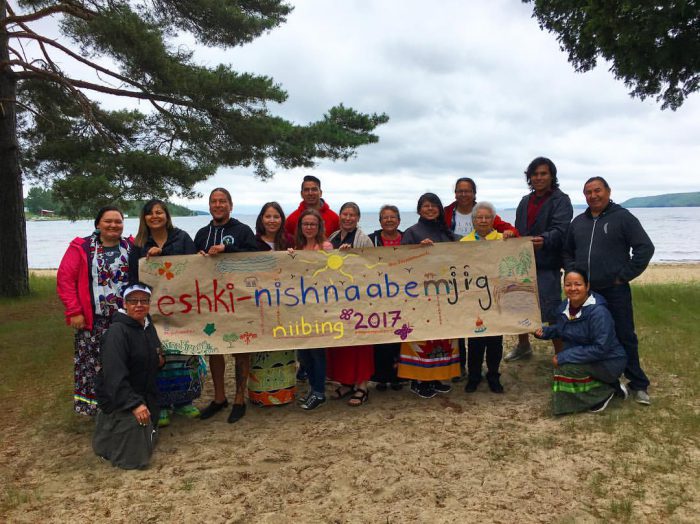
A class at Eshki-nishnaabemjig in 2017. Mskwaankwad is standing, third from left. (Courtesy of Mskwaankwad Menoomnii)
OWLconnected: Tell us about your program. Why did you start it?
Mskwaankwad Menoomnii: At this point in time, many or most people who speak Ojibwe as their first language are elderly. We have so few speakers left and our lives in general are inundated by English. In order for us to keep the language alive, we have to pick it up as adults. We modeled Eshki-nishnaabemjig after a different immersion program we attended down in Minnesota called Ojibwemotaadidaa Omaa Gidakiiminaang (say oh-JIHB-way-moh-tah-dih-dah mah gih-dah-KEE-mih-nahng). We recognized the fact that as adult learners, we needed full immersion support because we didn't speak the language growing up.
OC: How long does the program run?
MM: It is fairly short and we typically only run a couple of weeks every summer and that's just due to time and funding restrictions. We all have full-time jobs, and my colleagues have families, too. We would like to expand it into a year round program where people come out after a couple of years speaking Ojibwe fluently.
OC: What are the ages of people who take your course?
MM: Right now, it's more like people in their twenties, thirties, and older. I don't know how much interest there is in people younger than that. And I know at least for myself, when I was a teenager, it wasn't really on my radar. That's not to say there are not younger people who are interested in picking up the language. But hopefully one day we will be able to create a school like Waadookodaading [an Ojibwe school in Wisconsin, see the video at the end of the interview!] where these kids are growing up and speaking the language at school and in their homes.
That's the ultimate goal here. Raising kids in the language.
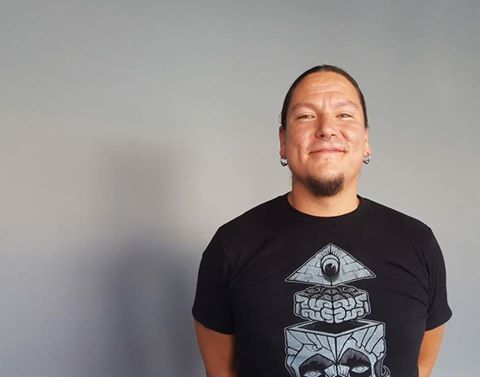
Mskwaankwad is also studying linguistics at the University of Minnesota to better understand Ojibwe. (Courtesy of Mskwaankwad Menoomnii)
OC: Speaking of being a kid, what was your own awareness of your Indigenous heritage growing up?
MM: Growing up on the rez [reserve, an area set aside by treaty for members of an Indigenous Nation] as a First Nations person, you supposedly know who you are—I'm Ojibwe, I'm Indigenous—but it's not until you're really older that you actually give that much thought as to what that really means.
My mom is non-Native, she’s English Canadian. But my dad really got into traditional ways and spirituality when I was a kid. That’s helped ground me as a person. Interestingly, he was raised Christian. It was a difficult and long road for him to get to the point where he decided he wanted to take up our traditional ways. Like the language, those ways were suppressed by the authorities in an effort to assimilate First Nations Peoples.
OC: Did anyone speak Ojibwe in your family?
MM: My grandmother spoke the language. But my dad didn't and I didn’t. But I think even as a kid, I kind of recognized that, ‘Well, if I don't speak it and no one else my age is speaking it, then eventually it's going to be gone.’ It wasn't until I was maybe a teenager that I thought to myself, [learning the language] is something I should do. And it was not until years after that, in my late twenties, that I finally took up the language. It was like, the time is now.
OC: Why do you think you finally decided to do that?
MM: It goes back to this identity thing we're talking about. I’m Ojibwe. But what does that mean? There's clearly the physical thing of it. I have this genetic background. But what does that mean for me as a person? How am I any different than anyone else?
How can I call myself Ojibwe if I don't speak the language?
Language is such a big part of any people, of any culture. And I think that fact [of identity] was a motivating factor, along with seeing that the language would eventually disappear if we didn't keep speaking it.
OC: How did you start learning?
MM: When I would visit with my grandma, I would ask her basic things in the language. How do you say this? Different words, different phrases. And then I would edit those and listen to them on my MP3 player, walking to and from work, just to pick up vocabulary.
I will also say that actually doing it—actually putting in the time and effort to learn the language—was way more difficult than I thought it would be due to the emotional factors involved. It's complicated. I think a big part of that has to do with the history. The fact that our language was suppressed by the government and by the schools. It was hard for me to take the step to actually speak the language with my gram. And even before I took up the language, I had no idea how different languages could be. English and Ojibwe are extremely different!
OC: What do you think is the personality of Ojibwe as a language?
MM: To be honest, the first thing that comes to mind is the humour. If you ever see a group of elders together, they're always laughing. They are some of the biggest jokers like that!
People used to say to me [about stories], “It’s funnier in the language.” And I never understood that. But that was actually a good motivator for me to get better at the language, because I wanted to know why it was funnier in the language. And as it turns out, it is funnier!
And I've always wondered how the language relates to this. Ojibwe is very verb based. It's like speakers are painting pictures as they’re talking. It is very descriptive. And I think that relates to the humour. As speakers are telling a story, you're 'seeing' these things happen in front of you. So if something happens to someone in the story—if they trip and fall—you're seeing it in real time. And it’s funny!

Though Eshki-nishnaabemjig has had to take a break due to the pandemic, Mskwaankwad and his friends hope to be back very soon! (Courtesy of Mskwaankwad Menoomnii)
OC: What has learning Ojibwe given you?
MM: That is a huge question. In 2012 when I moved back to the rez [to dedicate himself to learning], it was huge for me to take that step. Okay, I'm quitting my job in Ottawa and going home. I lived in a van down by the lake for at least two summers after moving home. But mentally and emotionally, [learning] was the best thing for me. For years I'd been like, I should do this. I should do this. Why am I not doing this? And when I finally undertook it? It was amazing.
The fact that I'm even functionally fluent in the language right now? When I was younger, I didn't know if that was possible because I had never seen it before. I had never seen a second language learner of Ojibwe until actually I saw a presentation by Ojibwemotaadidaa at a language conference in Sault Saint Marie. It really impacted me. Okay, this is doable. These people, they didn't speak it growing up, but now they're speaking.
OC: Hopefully that's an experience you can give young people today.
MM: I don't take a step back enough to look at what [learning Ojibwe] has given me. It's given me a lot. I do appreciate that I've done this, and that I'm still doing it.
To see some scenes from Waadookodaading, the Wisconsin Ojibwe immersion school that helped inspire Mskwaankwad, watch the video below.
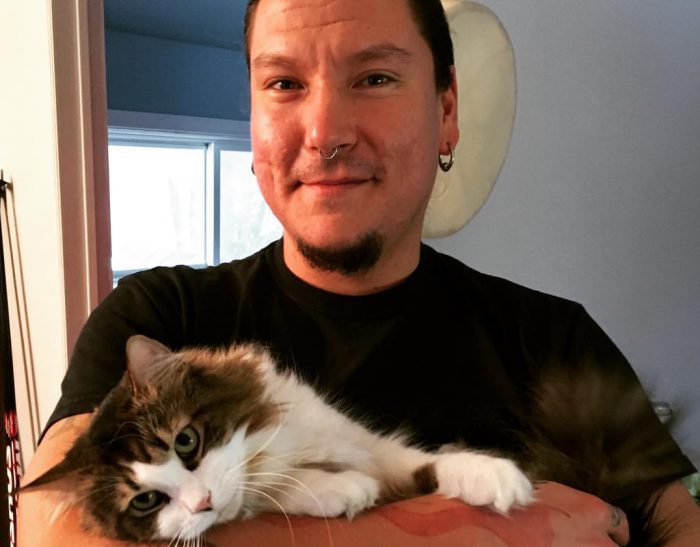 Mskwaankwad and his friend Marty! (Courtesy of Mskwaankwad Menoomnii)
Mskwaankwad and his friend Marty! (Courtesy of Mskwaankwad Menoomnii)
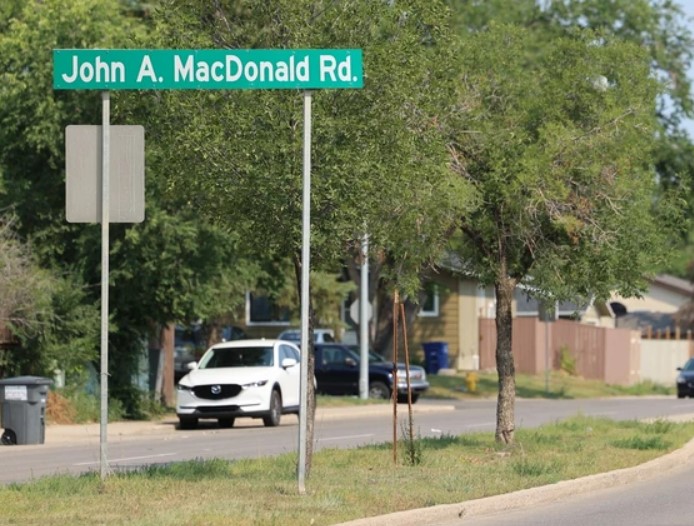
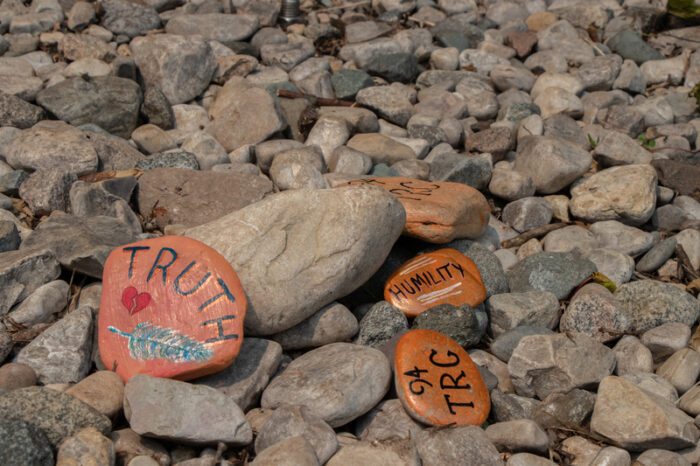
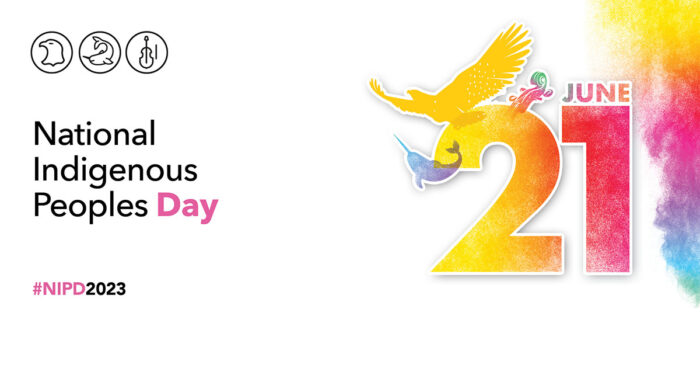
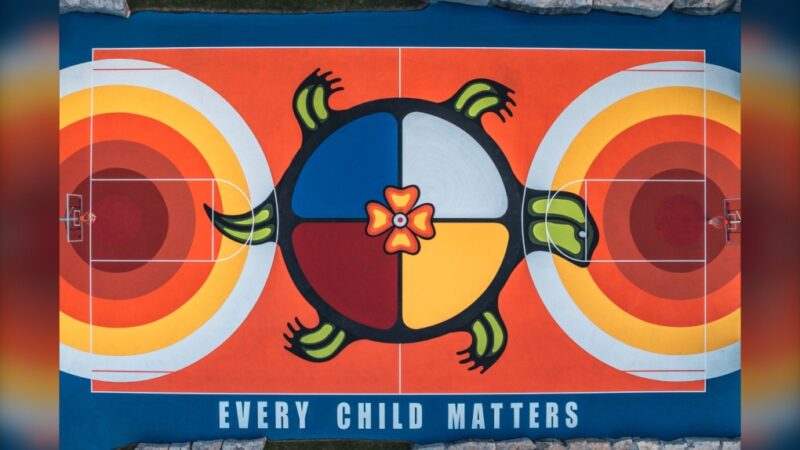
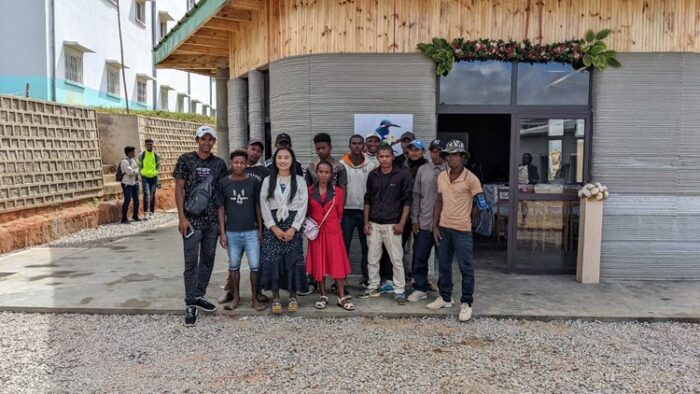
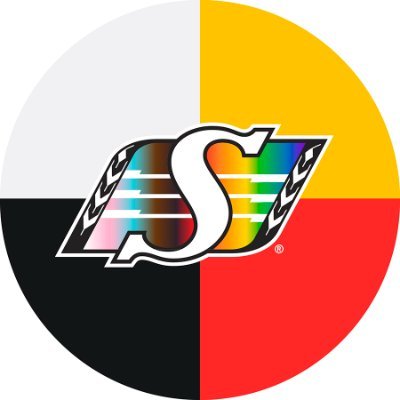

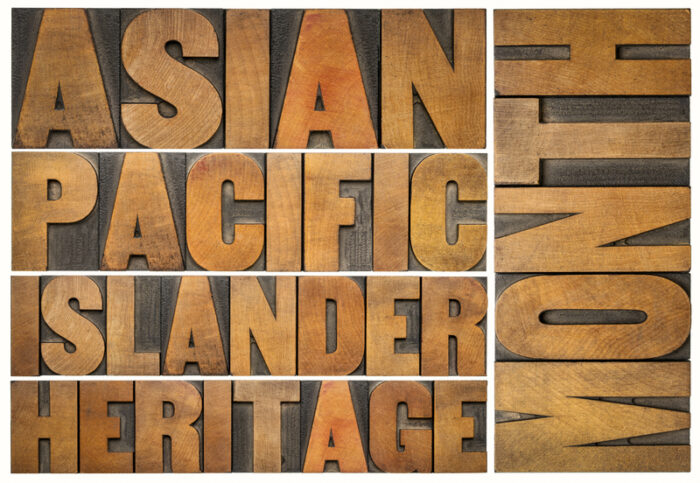

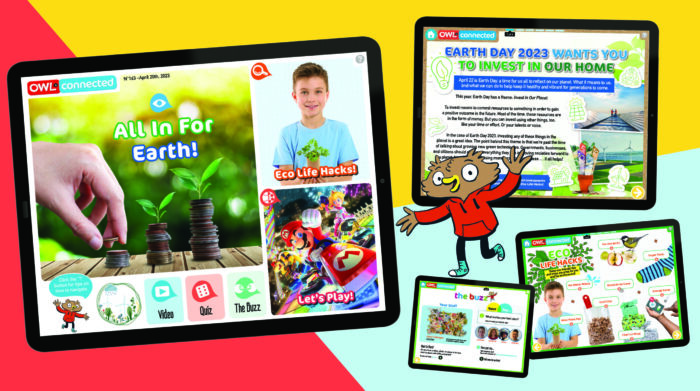
💡 truly inspiring- we can all do this. A young man in M’Chigeeng, Alan Corbiere, did the same. I will share this information. Chimeegwetch.